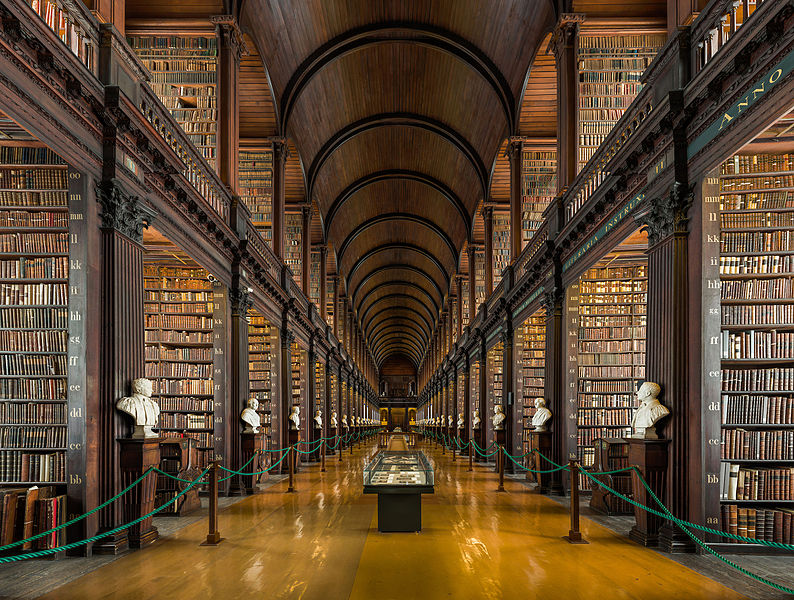Trinity will host a series of events this week to celebrate the 500th anniversary of the Reformation. Trinity’s Long Room Library houses a copy of Martin Luther’s translation of the Old Testament and currently sits as part of an exhibition organised by the School of Histories and Humanities and the School of English entitled “Power and Belief: The Reformation at 500”.
The exhibition is one of the events Trinity is running as part of a two-day theological symposium for the quincentenary of the Reformation this weekend. It will comprise of a series of lectures and discussions covering a wide range of topics such as the Reformation’s modern legacy and its relevance to Ireland.
Additionally, a travelling exhibition called the Reformation Installation will be held in Trinity’s Chapel from Friday at 4pm to Saturday at 5pm. Thus far, the exhibition has travelled through 67 cities and will be opened by the Provost, Dr. Patrick Prendergast, Reverend Dr. Donald Watts of the Presbyterian Church and Archbishop Dr. Michael Jackson of the Church of Ireland.
Speaking to Trinity News, Associate Professor of European History in Trinity, Dr. Graeme Murdock, stressed how the Reformation saved the declining print industry and also challenged Europeans to develop coping mechanisms for the emerging religious diversity on the continent. The actions of the Reformation “were sometimes violent and other times creative,” he said.
Other popular historical interpretations of the Reformation emphasise how Martin Luther and his followers’ access to the vernacular Bible led to a break with the Roman Catholic Church. This division set the precedent for many conflicts in the centuries to follow such as the German Peasants’ War and the Thirty Years War. There is no doubt that the translation of the Old Testament played a key role in the Reformation movement. It made religious scripture accessible for the layman and it exposed the papacy as corrupt and disconnected with the core values of Christianity.
The travelling exhibition also includes several other impressive texts such as an early copy of the Great Bible (1540), the first authorised translation of the Bible in English, William Bedell’s Irish translation of the of the Old Testament, the Leabhuirn na Seintiomana (1685) and a copy of the Epistolae Quaedam Pisimae (1537) from Czech reformer Jan Hus.







